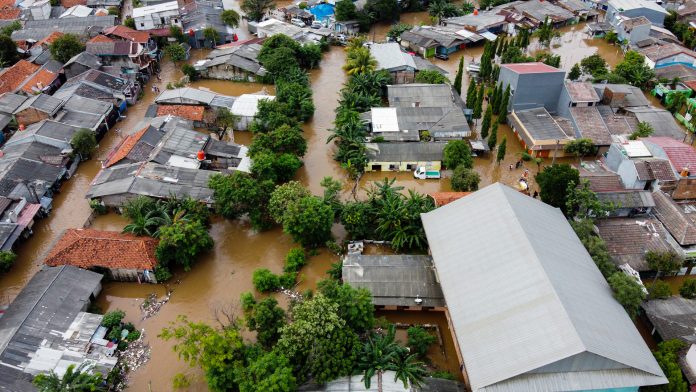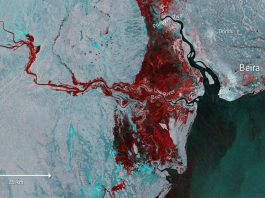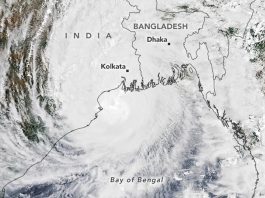A team of climate experts have signalled that climate change will continue to intensify extreme rainfall and floods if vital action is not taken.
The team, comprised of scientists from the University of East Anglia, Newcastle University, the Tyndall Centre for Climate Change Research, and the Instituto Nacional de Pesquisas Espaciais, have indicated that rising global temperatures exacerbated by climate change will continue to exponentially increase the frequency of severe rainfall and floods worldwide unless action is taken.
Their findings are published in the ScienceBrief Review.
Through the analysis of 170 peer-reviewed scientific papers, the researchers identified that the rate and intensity of rainfall and floods had been drastically amplified in small and urban catchments in various areas of the world, having dire consequences to local people and infrastructure. Furthermore, in rural catchments of a larger scale, floods are less directly attributed to extreme rainfall, with multiple factors influencing their occurrence.
The investigation has indicated that throughout the last two centuries, extreme daily rainfall has occurred on continental scales, with climate change raising the rate of short-duration extreme rainfall in some areas of the world.
Additionally, the research has signified that various human activity has also impacted the severity of floods and the scale of extreme daily rainfall; for example, the construction of urban areas built with impervious materials increases surface runoff, which further proliferates the effects of the ever-increasing rainfall levels. Experts hypothesise that limiting global warming to +1.5C can help to mitigate extreme rainfall.
Dr Stephen Blenkinsop, the leader of the study from Newcastle University’s School of Engineering, said: “Global warming means the atmosphere can hold more moisture and could also change the way storms behave. More intense rainfall extremes coupled with changes in other factors could increase the frequency and severity of flooding in many regions.
“Even if action is taken to limit the extent of global warming, we will need to improve our understanding of how extreme rainfall and flooding will change in the future in order to adapt our cities and other communities to more frequent or more extreme events.”
Adam Smith, from the University of East Anglia, commented: “This is an active area of research and our review highlights that the science is becoming increasingly clear on how climate change influences extreme rainfall and how that combines with other factors to increase the chance of floods in many places.”









